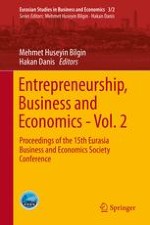2016 | OriginalPaper | Buchkapitel
Does the Impact of Trade Openness on Income and Income Inequality Differ in Developed and Developing Countries?
verfasst von : Asli Yenipazarli, Hatice Kucukkaya
Erschienen in: Entrepreneurship, Business and Economics - Vol. 2
Aktivieren Sie unsere intelligente Suche, um passende Fachinhalte oder Patente zu finden.
Wählen Sie Textabschnitte aus um mit Künstlicher Intelligenz passenden Patente zu finden. powered by
Markieren Sie Textabschnitte, um KI-gestützt weitere passende Inhalte zu finden. powered by
